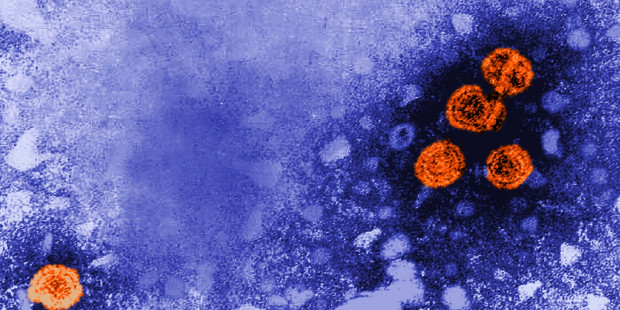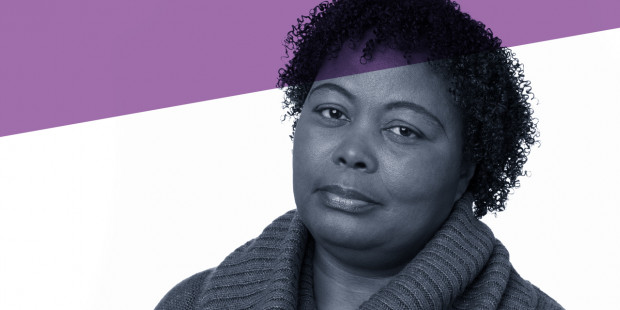AIDS-defining cancers are more likely to occur if you’re HIV positive and have a low CD4 count.
The AIDS-defining cancers are:
- Kaposi’s sarcoma (KS)
- invasive cervical cancer
- non-Hodgkin’s lymphoma.
Non-AIDS-defining cancers
Some cancers are more common in people with HIV, despite not being classified as AIDS-defining. This may be because the underlying cause of some cancers is viral.
Human papillomavirus (HPV)
Anal cancer is linked to HPV – a common virus that is passed on sexually, through close physical contact or through sharing sex toys.
HPV also causes most cases of invasive cervical cancer and some head, neck and oral cancers. (It is also a cause of genital warts.)
Other cancers that are linked to viruses and have higher rates in people with HIV:
- Hodgkin’s lymphoma (linked to the Epstein Barr virus)
- liver cancer (which can be related to hepatitis B or C).
People with HIV have higher rates of 'modifiable' cancer risk
According to a 2016 study published in AIDS, higher rates of modifiable risks of cancer were found in HIV positive people.
Modifiable cancer risks are things that can often be avoided with lifestyle changes, like:
- higher levels of smoking
- drinking
- infection with HPV and hepatitis B and C.
Each of these poses an increased risk for cancer and all were found to occur more often among people living with HIV than in the general population.
- 54% of HIV positive people included in the study were smokers – around two-and-a-half times higher than the general American population.
- 5% of HIV positive people were co-infected with hepatitis B compared to 0.3% of the general population with hepatitis B.
- 26% of the individuals had chronic hepatitis C compared to 0.9% of the general American population.
- 46% of women had HPV infection that could lead to cancer compared to 29% of the general US population.
- 68% of men who have sex with men had anal HPV infection with a risk of leading to cancer, although there were no general population figures available.
Studies show that lung cancer occurs more often among people living with HIV compared to people without HIV. This could be because people with HIV are more likely to smoke than the general population. However, the risk for lung cancer is also increased for people with HIV who don’t smoke.
Alcohol and risk of cancer
British guidelines on alcohol intake now say that neither men or women should drink more than 14 units of alcohol each week because of increased risks of cancer.
Additionally, a recent American study called Veterans Aging Cohort Study (VACS) compared male military veterans to find out whether alcohol was worse for people living with HIV. It found that men drinking more than around 13 units per week were at an increased risk of death compared to HIV negative men.
In the light of these findings, it’s particularly important to look at any lifestyle changes you could consider making if you feel you may be at an increased risk for a particular type of cancer.
What else can I do to reduce my chances of getting cancer?
One in three people will develop cancer in their lifetime.
According to the NHS, small changes to your lifestyle can reduce your risks of developing cancer. These include improving your diet, getting enough exercise, getting enough rest, stopping smoking, and cutting down on alcohol.
Staying at a healthy weight and avoiding sun damage to your skin is also important.
Make sure to take up routine testing such as screening for cervical, breast or bowel cancer. Starting antiretroviral treatment straight away can also be preventative.
How is cancer treated?
Most types of cancer are treated with radiotherapy, chemotherapy or surgery, although some AIDS-related cancers respond well to antiretroviral treatment.
Kaposi's sarcoma (KS), where purple, brown or black lesions appear on the skin and sometimes on the outside of internal organs or in the intestines, is linked to the human herpes virus 8 (HHV8). If you’re diagnosed with KS you’ll usually be given antiretroviral treatment in the first instance as this often causes it to disappear. If you have KS inside your body you may need to have a different type of treatment, such as chemotherapy or radiotherapy.
As people with HIV are now living longer, they have an increased chance of developing cancers generally associated with older age that are not linked to having HIV.
Further support
- Macmillan Cancer Support has further information about cancer and treatments.
- Cancer Research UK has further information about cancer and treatments.






